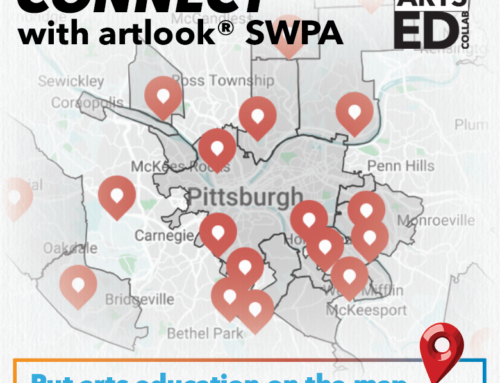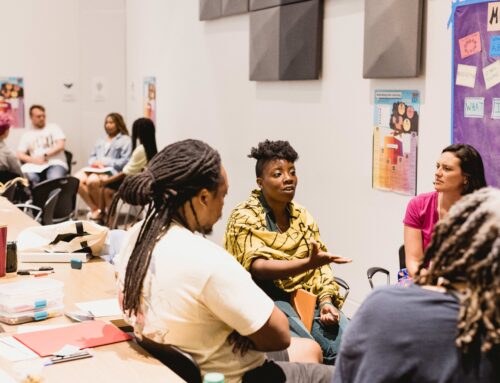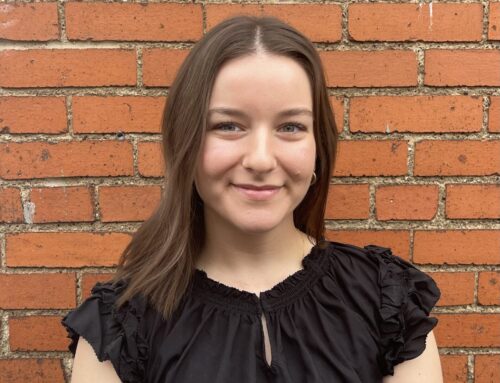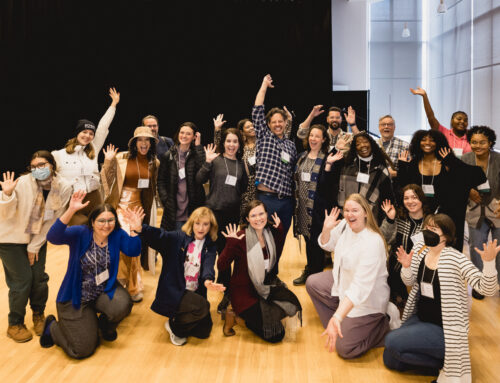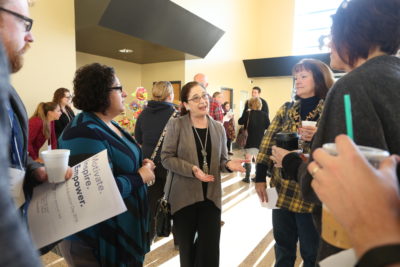 Regional Arts Education Day 2017
Regional Arts Education Day 2017
Join us for a day of learning!
Recharge your professional learning by spending the day with Arts Education Collaborative at the annual Regional Arts Education Day on October 9, 2017 at Keystone Oaks Middle School. The day will begin at 8 AM and end at 4 PM.
Keynote speaker Bill Isler, former President and CEO of The Fred Rogers Company, will kick off the day. Bill’s leadership of The Fred Rogers Company led to the creation of the TV shows Daniel Tiger’s Neighborhood, Peg + Cat, and Odd Squad, which have won 17 Daytime Emmy awards. Bill was honored by PBS in 2017 with the “Be more” Award.
Confirmed breakout sessions include:
Understanding ESSA: The New Federal Education Law and Its Impact on Arts Education – Mark Despotakis, Progressive Music
The Every Student Succeeds Act (ESSA) is the new federal law impacting all parts of a school. ESSA replaces No Child Left Behind and allows for more flexibility and the arts education community cam take advantage of that. Learn about how the arts fits into ESSA and ways to gain access to new opportunities and funding streams for arts education. We’ll break down ESSA in an easy to understand, “non-policy” speak way and discuss implications of Pennsylvania’s plan to implement ESSA in the Commonwealth. ESSA is a once in a decade change to the educational landscape and it’s important to know how the arts education community can take advantage of these new opportunities.
Using STEAM Learning to Design Your Space – Nina Barbuto, Assemble
Are you in the process of turning that old computer lab into a makerspace or a STEAM classroom? Don’t know where to begin? Join Assemble to learn how your students can help design the space while participating in the process! Through the process, the students can utilize their STEAM skills to bring their ideas into fruition. It’s the meta makerspace mentality, bringing all the voices to the table.
The Importance of Teaching the HEARTS in Our Schools – Rich Panteleo
A reflection on things that aren’t measured by testing programs, but appear to be of importance in the lives of our students.
LoTI and the Arts Classroom – Ashley Mutschler, Ringgold School District
Is your teaching mojo low? Lessons and projects a little cold? LoTI certified mentor, Ashley Mutschler, shares the basics of LoTI (Levels of Teaching Innovation) and how it can easily apply to any arts room at any level. Participants will explore the LoTI levels and design a lesson or project that turns up the heat!
Introduction to Diversity, Equity, and Inclusion – Phoebe Stern, Arts Education Collaborative
Come learn in a friendly environment what diversity, equity, and inclusion are and how you can bring practices that promote them into your schools.
Not Your Music Teacher’s Concert/Not Your Art Teacher’s Art Show – Keystone Oaks School District
Do you want to host an interactive arts night for your students and the community that reflects what you’re actually doing in the classroom? Do you worry about how much work something like this might be? Do you wonder where you might begin? Are you ready to go for it? This session won’t give you all of the answers, but we will share with you what we did to host our district’s elementary Studio & Stage nights and get you started towards creating your own event. Studio & Stage is an interactive arts event for families to interact with the curriculum in new and interactive ways, while still honoring the school arts traditions (i.e., Concerts and Art Shows).
STEAM + Inquiry = Access for All – Angela Capuzzi, Brownsville Area School District
Select an object. Examine it. What do you see, hear, feel, taste, or smell? Explore with it. Does it change the way you think? Using inquiry as an entry point for exploration and examination of STEAM concepts encourages students to seek answers in a low risk / high curiosity learning environment. I use this strategy to introduce optics, magnets, circuits (and more!) at many of my after-school club meetings. Providing multiple entry points allows each student confidence in his / her approach to study.
An Introduction to Wick for the Arts Classroom – Luca Damasco and Zach Rispoli, Carnegie Mellon University
Wick is a free web-based toolkit designed to create interactive media for the Internet by merging the worlds of digital creative expression and computer programming. With Wick, students can create games, animations, and everything in between. Wick creations can run on any device with a web browser – that means mobile too. And since Wick lives in the browser, you don’t have to download any extra software to use it! Wick is a hybrid animation tool and a coding environment, heavily inspired by similar tools such as Flash, HyperCard, and Scratch. It was developed in response to a growing need for such a tool for the modern web, and fills a space soon to be created by the “death of Flash”.
More Apps for Educators – Melissa Unger, South Fayette Township School District
Come explore a dozen apps and digital tools that you can use in your classroom regardless of subject area. We will take a look at new or lesser-known tools for reflection, documentation, media-making, and more!
EarSketch for Music Teachers – Kate Sickler, Winchester Thurston School
“Computer Science for Art and Music” and “Computer Science for the Humanities” are two introductory courses Kate Sickler teaches at Winchester Thurston School. In these courses, students combine elements of the arts, humanities, and coding to solve problems. EarSketch is a tool Kate uses to help students new to computer science learn abstract concepts – loops, repetition, and iteration – through music. By anchoring their learning in something familiar, students more quickly grasp how their code relates to real-world applications. Computer programming also adds access to tools not readily available in the typical high school, e.g. sampling of instruments and beats. Music and computer programming become symbiotic, helping students learn multiple skills at the same time, while also promoting creativity. This session is geared toward teachers interested in adding a new element to their music classes. No coding experience is necessary.
A special strand will be offered for health and physical education teachers, although these sessions are open to all interested attendees:
Pioneering Wellness, an introduction to Slippery Rock University’s new HPE program – Ethan Hull, Slippery Rock University
Creating a culture of health and wellness in schools benefits everyone, students, teachers, administrators, famalies and community members. This session will focus on strategies that can be used to create such a culture along with providing an overview of Slippery Rock Universities new School Wellness Education Program.
Creative Movement in the HPE Classroom – Michele de la Reza and Abigail Mason, Attack Theatre and Kristy Schelb, South Fayette Township School District
Join dancers/educators Michele de la Reza and Abigail Mason from Attack Theatre and Physical Education instructor Kristy Schelb from South Fayette Township School District to learn about the district’s new curriculum initiative in health and physical education (HPE). Attack Theatre and South Fayette’s HPE teachers spent a year together embedding creative movement into the district’s HPE curriculum. This double session will start with an introduction to the district’s curriculum and the unique process of writing and moving that led to the creation of the HPE curriculum. The second half of the session will be spent in the gym embodying some of the principles in the curriculum. Participants should come dressed to move!
Individual tickets are $75 and can be purchased at AEC’s EventBrite page. Registration includes breakfast and lunch. Discounts are available for districts sending teams of teachers.
Registration closes on October 3. No late or on-site registrations will be accepted.



